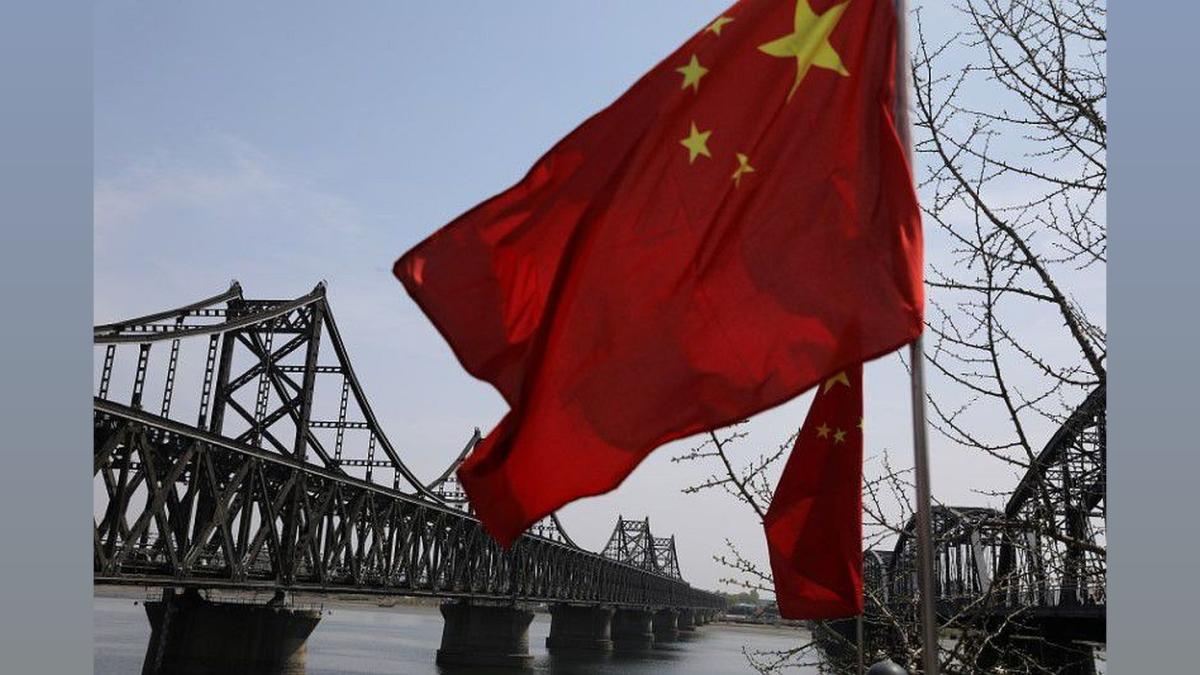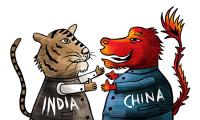China Violated Border Agreements with India: Jaishankar
India's External Affairs Minister S Jaishankar says China violated border agreements, leading to ongoing tensions. He links these tensions to the shadow cast on India-China relations.

Washington, Oct 1 (PTI) China has violated border agreements, External Affairs Minister S Jaishankar said on Tuesday, noting that continued tension will cast a natural shadow over the rest of this relationship.
"In terms of our own relationship with China, I think it's a long story. But the short version is that we had agreements on how to keep the border peaceful and tranquil. Those agreements were violated by China, he said in response to a question at the Carnegie Endowment for International Peace think-tank.
"Because we have forward deployments of our militaries, those are resulting in tensions. Until those forward deployments are addressed, the tensions will continue. If the tensions continue, it casts a natural shadow over the rest of the relationship. So, our relationship hasn't been great for the last four years, he said.
The minister was asked about tensions with China and at the same time, China surpassing every country in its trade relationship with India.
The ties between the two countries nosedived significantly following the fierce clash in the Galwan Valley in June 2020 that marked the most serious military conflict between the two sides in decades.
India has been maintaining that its ties with China cannot be normal unless there is peace in the border areas.
The two sides have so far held 21 rounds of Corps Commander-level talks to resolve the standoff.
India has been pressing the People's Liberation Army (PLA) to disengage from the Depsang and Demchok areas.
The two sides held the last round of high-level military talks in February.
"When it comes to trade, China accounts for about, globally, about 31-32 per cent of global manufacturing. A lot of that has happened because over multiple decades, the international business, which is primarily Western-led, has chosen to collaborate with China for mutual benefits, Jaishankar said.
"Today for any country, if you are into any kind of consumption or even into any kind of manufacturing, sourcing out of China is something which is inevitable. Because if you are consuming, if you are not manufacturing and consuming, that probably means you get a lot of things for the cheapest. Even if you are manufacturing, a lot of your components and your semi-processed materials come out of there, he added.
"So, in a sense, trade with China at one level is almost autonomous of the political or the rest of the relationship. I don't think it's just a question of numbers. You also need to look at what it is you are trading. Because there would be countries that would be more sensitive to their exposure. There would be countries who wouldn't care, Jaishankar said.
"In terms of our own relationship with China, I think it's a long story. But the short version is that we had agreements on how to keep the border peaceful and tranquil. Those agreements were violated by China, he said in response to a question at the Carnegie Endowment for International Peace think-tank.
"Because we have forward deployments of our militaries, those are resulting in tensions. Until those forward deployments are addressed, the tensions will continue. If the tensions continue, it casts a natural shadow over the rest of the relationship. So, our relationship hasn't been great for the last four years, he said.
The minister was asked about tensions with China and at the same time, China surpassing every country in its trade relationship with India.
The ties between the two countries nosedived significantly following the fierce clash in the Galwan Valley in June 2020 that marked the most serious military conflict between the two sides in decades.
India has been maintaining that its ties with China cannot be normal unless there is peace in the border areas.
The two sides have so far held 21 rounds of Corps Commander-level talks to resolve the standoff.
India has been pressing the People's Liberation Army (PLA) to disengage from the Depsang and Demchok areas.
The two sides held the last round of high-level military talks in February.
"When it comes to trade, China accounts for about, globally, about 31-32 per cent of global manufacturing. A lot of that has happened because over multiple decades, the international business, which is primarily Western-led, has chosen to collaborate with China for mutual benefits, Jaishankar said.
"Today for any country, if you are into any kind of consumption or even into any kind of manufacturing, sourcing out of China is something which is inevitable. Because if you are consuming, if you are not manufacturing and consuming, that probably means you get a lot of things for the cheapest. Even if you are manufacturing, a lot of your components and your semi-processed materials come out of there, he added.
"So, in a sense, trade with China at one level is almost autonomous of the political or the rest of the relationship. I don't think it's just a question of numbers. You also need to look at what it is you are trading. Because there would be countries that would be more sensitive to their exposure. There would be countries who wouldn't care, Jaishankar said.
You May Like To Read
TODAY'S MOST TRADED COMPANIES
- Company Name
- Price
- Volume
- Vodafone-Idea-L
- 11.65 (+ 3.56)
- 106772451
- Alstone-Textiles
- 0.28 ( -3.45)
- 44187760
- Mangalam-Industrial
- 0.88 ( -2.22)
- 39177573
- Sunshine-Capital
- 0.27 (+ 3.85)
- 35956340
- GMR-Airports
- 104.40 (+ 6.37)
- 30453005





